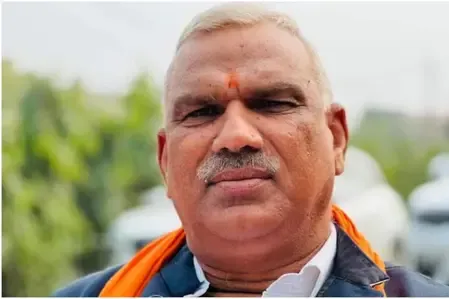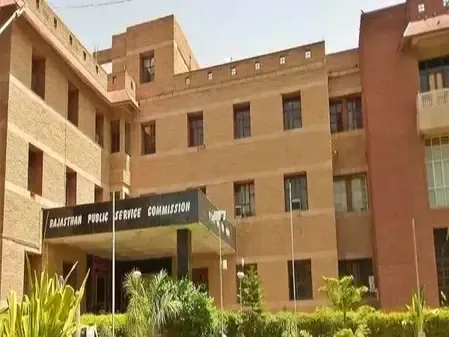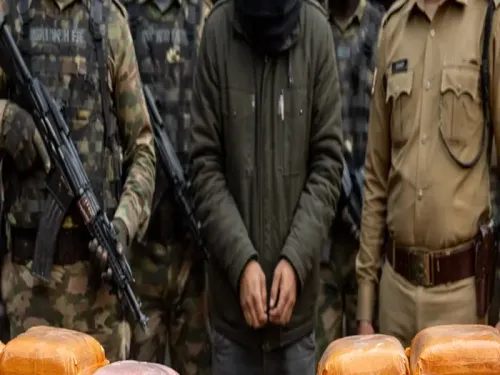What Aid Did MP CM Announce for Families of Elephant Attack Victims?

Synopsis
Key Takeaways
- Financial aid of Rs 25 lakh announced for each bereaved family.
- Tragic loss of three villagers due to an elephant attack.
- Government's 47-crore plan to mitigate human-elephant conflicts.
- Training programs to help locals manage elephant encounters effectively.
- Ongoing risks posed by migrating elephant herds from Bandhavgarh Sanctuary.
Bhopal, May 19 (NationPress) The Chief Minister of Madhya Pradesh, Dr Mohan Yadav, has declared a monetary assistance of Rs 25 lakh for the families of three villagers who sadly lost their lives in a horrifying elephant attack in the Shahdol district.
Offering his heartfelt condolences, he reaffirmed the state government's steadfast commitment to support the bereaved families during this challenging period. In a post shared on X, the chief minister stated, “A tragic event unfolded in Shahdol district, where three villagers fell victim to an unexpected elephant attack while they were gathering tendu leaves in the forest.” He emphasized that acknowledging the severity of the tragedy, the government has pledged “financial support of Rs 25 lakh for each affected family.” “As the investigation advances, measures are being taken to prevent such occurrences in the future,” the chief minister added.
According to law enforcement, a herd of wild elephants attacked the three villagers, who had entered the forest to collect tendu leaves on Monday, resulting in their immediate deaths.
Initially, authorities confirmed two fatalities; however, it was later revealed that another villager, Mohan Lal Patel, was also tragically killed by the elephants, as per police reports.
The deceased were identified as Umesh Kol (40), Devgania Baiga (65), and Mohan Lal Patel, estimated to be between 80 and 85 years old, hailing from Barachh village.
In an interview with IANS, sub-divisional police officer Ravi Prakash Kol mentioned that the victims had entered the forest early in the morning to gather tendu leaves. As Umesh became surrounded by elephants, other collectors fled, alerting the forest department. His wife, who accompanied him, escaped by climbing a tree but was helplessly forced to watch her husband being trampled.
Meanwhile, just a kilometer away in Doda forest, Devgania Baiga faced a similar fate. While she was collecting tendu leaves, she was suddenly confronted by wild elephants. Despite her desperate calls for help, she could not escape and was crushed.
Mohan Lal Patel also ventured into the forest near his village and was fatally attacked by the elephants.
Incidents involving elephant attacks are common in villages adjacent to the state. Forest officials noted that this particular herd has migrated from Bandhavgarh Sanctuary and is currently moving towards Biohari from Sidhi. Their presence has raised alarm among local residents, who are deeply fearful due to past incidents of destruction, including damage to crops and homes.
For many tribal communities in Madhya Pradesh and Chhattisgarh, collecting tendu leaves is a crucial source of income, making human-elephant conflicts a persistent issue. To tackle these ongoing confrontations, the government recently approved a 47-crore Human-Elephant Conflict Mitigation Plan. Launched on May 13, this initiative aims to provide farmers and rural communities with strategies to manage sudden encounters and safeguard their livelihoods.
Urban Development Minister Kailash Vijayvargiya stated that training programs will be organized to assist individuals in safely driving elephants away from farmland and minimizing losses.
Forest officials estimate that over 150 wild elephants regularly inhabit the Bandhavgarh and Sanjay Dubri Tiger Reserves. Many of these elephants migrate from neighboring Chhattisgarh and frequently intrude into tribal villages, enhancing the risks associated with crop destruction, property damage, and human casualties. As efforts to alleviate these conflicts progress, authorities remain dedicated to protecting both wildlife and local communities from further devastation.










